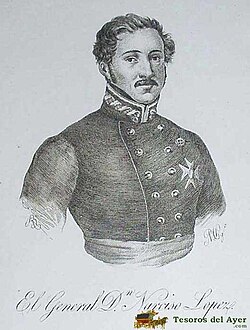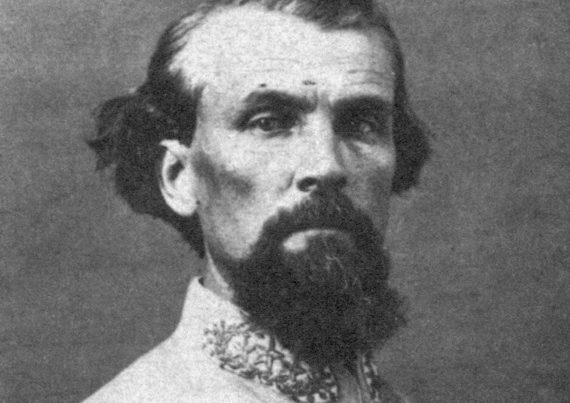
In the popular imagination the South is viewed as a region typified by racism, poverty, and ignorance save a few special islands, such as Chapel Hill and Charlotte, which lay in the archipelago of enlightenment. There are some cracks in this edifice of Yankee bigotry, but when political and cultural wars become heated, the edifice is trotted out once more to remind the American people as to who wears the white hats and who wears black. None of this, of course, conforms to the far more complex reality from which Southern culture and identity emerged.
Before examining the commonalities that give coherence to the South, it is crucial to understand the important realities of ethnic and cultural diversity that have always been a hallmark of the region. Of the eleven American nations scholars have identified, five are located in the South: the Tidewater, Greater Appalachia, the Deep South, New France, El Norte, and the Spanish Caribbean. There is not one Southern accent, but at least eleven different regional dialects. The South is also home to at least five major culinary traditions. There is no doubt that the peoples of the British Isles have left the deepest cultural imprint upon the South, but crucial contributions to Southern culture and tradition have also been made by people of African, German, French, and Spanish descent. Here is true diversity, not the current pretend variety where a community celebrates differences, as long as everyone thinks and acts within a rigid ideological template.
Important commonalities have also shaped Southern culture and the Southern tradition. The South was until recently an agrarian society. The dispersed settlement patterns found in the South, as well as important cultural practices brought over from the South and West of England, elevated hospitality and manners to an exalted place in Southern society. For many generations Southerners, both Protestant and Catholic, adhered to what Richard Weaver referred to as the “older religiousness of the South.” This religious mentality of Southerners was characterized by an acceptance of the inscrutability of God’s will, the authority of the Scriptures, and a deep religious sentiment. In the political realm from Delaware to Texas, Southerners proclaimed their loyalty to the traditions and practices of political restraint, states’ rights, and local governance. One cannot discount the impact of race slavery upon the South, nor the later Jim Crow regime the South adopted from Northern examples. Most crucial, and perhaps too often underplayed in the formation of Southern identity, is the experience of secession, war, defeat, and reconstruction, which has among other things, left the South with a legacy of poverty and a deep sense of inferiority. To some degree these commonalities are weakening, even as regional dialects and identities are strengthening elsewhere in America; Southern identity and the Southern tradition is slowly eroding.
Before the South entered the crucible of war in 1860, the presence of a unique and coherent Southern identity was doubtful. This is not say that both Southerners and Northerners recognized important cultural differences between the regions. Moreover, the Southern states gradually became aware of their growing status as a political minority during the antebellum period. Of the solid South that emerged in the wake of Reconstruction little was seen. The truly national parties had strong footholds in the region, and minus a few important dissenting voices, it was Southerners who embraced the great national wars against Great Britain in 1812 and Mexico in the 1840s. Southerners of the highest caliber, embraced the concepts of national greatness and manifest destiny. Henry Clay was in the forefront of this movement as an important leader of the Whigs, and the formidable John C. Calhoun viewed nullification as a remedy to prevent secession—his concern always centered on the right of the South to be treated as an equal partner in the Union. The erratic yet far-sighted John Randolph of Roanoke was often frustrated in his efforts to forge a unified Southern coalition in opposition to the encroachments and consolidation of federal power. He was not above playing the slave card to do so, but even here he hoped to ignite a fear of federal interference in what Southerners considered a domestic matter. The overt defense of slavery as an institution would come in another day by a small minority reacting to what they perceived to be intolerable provocation from abolitionists.
The election of 1860 changed all. The Republican victory was the victory of a regional party, not a national party. The Republicans had controlled the House since 1856, won control of the presidency in 1860, and made inroads into the Democrat’s majority in the Senate. The writing was on the wall and so the states of the South began to leave the Union. It was the forge of war, defeat, and Reconstruction that fashioned the “Solid South.” Henry Timrod’s poem, “Ethnogenesis,” captured the situation quite well—the South now had a national consciousness. As a nation, the South underwent the harrowing experience of war, including war made upon its non-combatant population, and in the wake of the war, military occupation, racial animosity, violence, disenfranchisement, and crushing poverty. No state in the old Confederacy was immune from these effects of war and defeat.
The common experience of the South did not end with demise of Reconstruction. The South made a conscious decision not to continue resistance through a guerrilla war, there was to be no “long war” strategy such as the Irish, Poles, and Spaniards pursued in their national struggles. The implementation of dual federalism also defused a renewal or continuation of the conflict. Under this policy, the states and federal government were deemed to have separate spheres of authority and activity, granting to all the states considerable autonomy in their social and economic policies. Booker T Washington’s, “Atlanta compromise” speech set down the parameters for race relations in the South. African-Americans would defer their demands for political and social equality in return for Southern white support of Southern black educational and entrepreneurial endeavors. On the cultural front, a great compromise was forged whereby the South was allowed to praise and honor her war heroes as long as they conceded that the war’s outcome was for the best and part of the higher destiny to which the United States was called. Nevertheless, there was an important social and cultural occupation of the South. The South’s education system, which before the war was a diverse mixture of public and private academies and colleges, tutors, and for some education abroad, was now modeled upon the public education system of New England. Missionaries from the North came down into the South during the early twentieth century and introduced Fundamentalism in Southern churches. The South which was once the center of horse racing, hunting, and fishing over time adopted the games of its erstwhile enemy: football, basketball, and baseball. True, the South baptized these sports with the appropriate pageantry and ceremony, but it was a significant departure from the region’s traditional recreational pursuits. The promoters of the New South worked toward transforming the region economically, taking the North’s industrial system as their model.
The great compromise began to crack in the 1920s with the infamous Scopes “Monkey Trial.” In a piece published by the New York Evening Mail in 1917, H. L. Mencken, the acerbic columnist for the Baltimore Sun, portrayed the South in his essay, “The Sahara of the Bozart,” as a benighted land, sterile as a desert, given the absence of any sort of intellectual or artistic life. Mencken continued the assault through the 1920s. When Southerners responded to Mencken and other critics of the South, for example the Southern Agrarians, charges were hurled back at the South’s heightened sensitivity to well-deserved criticism. The true Achilles heel of the South was not Southern culture per se, but rather the practice of Jim Crow. True, Jim Crow was nothing more than the codification of informal Northern practices of racial segregation, but the restriction of tax paying members of the community to separate public facilities was grating on any sense of fairness or justice. Contra the decision in Plessy v. Ferguson, the separate facilities for blacks and whites were not “equal” by any real measure of quality or quantity. If the NAACP had chosen to attack Jim Crow on these grounds, it is doubtful that Southern states would have been able to afford the necessary upgrades to African-American public facilities to meet the test set down by the decision in Plessy. As a result, integration may have occurred under very different circumstances. Instead, the NAACP and other civil rights organizations chose to attack segregation on the ground of ideology, where a bigoted South must be brought to embrace the primary American principle of equality by any and all means. The narrative of the civil rights movement became one in which a second reconstruction of the South was justified so that the principle of equality might vanquish the dark forces of racism and bigotry.
Even though the reign of Jim Crow came to an end in the South, and generally a much more peaceful end than in many northern states, the demonization of the South was only beginning. As the more socially and religiously conservative region of the union, the South came under regular attacks for its commitment to school prayer and public religious displays, for the defense of the traditional form of marriage, and for any display of Confederate symbols or any sorts of public honors paid to Confederate heroes. These attacks on Southern tradition and culture revealed a good deal more about the second generation of Reconstructionists than they did about the shortcomings of the South. Many of these new Reconstructionists were the inheritors of a secular Puritan legacy and the disciples of cultural Marxism who began to dominate the academy in the 1960s.
The ideological legacy of the Northern victory in the War Between the States was the triumph of a secularized Puritan ideology. This ideology viewed the United States as nation with a special destiny in history to create a secular city upon the hill which all nations would come to emulate. Robert Penn Warren observed that the War Between the States had conferred upon the South the myth of the “Great Alibi, by which all of the region’s shortcomings could be laid at the foot of the war. Meanwhile, “the Northerner, with his Treasury of Virtue, feels redeemed by history, automatically redeemed. He has . . . an indulgence, a plenary indulgence, for all sins past, present, and future, freely given by the hand of history.” This plenary indulgence meant that the Left and other enemies of the South would never be content with mere cultural hegemony, rather they wished everyone to think exactly as they did. When married to cultural Marxism in the 1960s, the secular Puritan mentality viewed identity politics as central to the achievement of a just nation which practiced tolerance, acceptance, and equality. In the name of these new values began the long march through the institutions of education, the arts, media and government. The new speak of this movement was political correctness, an attempt to seize control of the narrative by seizing control of the language. The new slogan of equality, tolerance, and acceptance became a means of virtue signaling, whereby one could identify with the new moral zeitgeist, while excluding those who disagreed with the definition or application of the terms of the new slogan. To accept the Left’s meaning and use of the terms equality, tolerance, and acceptance meant to be welcomed into the “big tent” of moral righteousness; to reject the same was to be branded an outcast.
In this matter, many Southerners were only too happy to oblige their moral betters. Thus emerged the self-loathing leftist Southerner who was all too willing to believe and identify with any negative stereotype hurled at Southerners. If this meant that the great compromise was to be repealed so be it. If this meant accepting the Neo-Abolitionist and New Left narratives concerning the Civil War, then so be it. If this meant the destruction of Confederate monuments, then so be it. Indeed, if it meant the reconstruction of all Southern memory, meaning, and tradition, ante-bellum, bellum, and post-bellum, then so be it. These folks became the “Good Southerner” the equivalent of the “Good Indian.” The plight of both is similar. No matter how high both rise on the ladder of “civilization,” no matter how obsequious each is to their masters, they both remain the unredeemed children of the wilderness. The “Good Southerner” may certainly profit by adopting the values and worldview of the enemy of his region, but the payment received for this is the distortion of his history, his culture, and his identity. What is most pathetic and sinister about this situation is the welcome he extends to his own alienation from his true identity and history; indeed, he views his alienation as a sign of redemption. He no longer remembers who he is, and is happy for it. When he meets non Southerners or travels outside the region and is asked if he plans to marry his first cousins, he is incapable of even recognizing the attack upon the honor of himself and his people, for he has no honor left. Instead he embraces the bigotry of his “moral superiors,” which is the last politically correct prejudice.
Signs of hope do exist. Leviathan is in crisis across the globe. The British exit from the European Union, the rise of Marine Le Pen, the emergence of vigorous nationalist parties throughout the world, and the awakening of secessionist sentiment in California all point toward political devolution. A large factor in this polar shift of global politics is the rise of an alternative digital media that is both nimble and difficult to control. The Left also made a grave political error. Unable and unwilling to tolerate any dissent from their social and cultural agenda, they revived a politics of identity that is now being embraced by many non-leftists. In America, the Democratic Party is still unable to fathom its defeat in elections across the United States in 2016, even as it denigrated its opponents as a “basket of deplorables” and “irredeemables” who have no place in America. This is the language of war, and given the electoral fortunes of the Left, it may be that the culture war is not quite over. Less dramatic, but no less significant is, the re-emergence of localism across the political spectrum. Businesses and farms oriented toward local needs and tastes, talented apologists for localism across the political spectrum all give hope of a return to the values of live and let live—and the silencing of the gnostic desire to build universal kingdoms across the globe.
The above unlooked for trends do provide room for a revival of the best in the Southern tradition. We have, however, much work to do. Our support must go out to any and all who advocate for a return to states’ rights, local governance, and political restraint. I wish California well in the efforts of her citizens who hope to secede. I may not agree with all of their reasons for doing so, but I wish them well and urge them to pursue the matter with prudence, restraint, and justice. The emergence of the little platoons of society: homeschooling, micro farms, local businesses for local communities, are as welcome as a cool rain in July, may all such thrive and do good in their communities. And we pray of course for a return to the older religiousness of the South, the bedrock of any lasting revival of the Southern tradition.
The South will survive because in many ways it has embodied so much that is good in the Western and Christian traditions. Contra our misguided foes, no one is foolish enough to wish for the return of slavery, Jim Crow, or the endemic violence that plagued the frontier regions of the South. What does need to be revived is the traditional Southern respect for nature, the acknowledgement of the inscrutable will of God, the right of local communities and states to govern themselves, and tolerance for those who may think differently from ourselves. A putting away of duplicity, always a mark of the conquered, and an embrace of forthrightness, hospitality, and good manners would go very far in healing the region of its real wounds. Let us have no “New South” imitations of modern Yankee businesses, Yankee universities, Yankee education systems, Yankee politics, and Yankee manners. These may have their place, but that place is not here. Let us instead advocate for the best in the Southern tradition and rebuild it each day and in every moment of our lives. By all means let us avoid (and forgive) the sins of our fathers, but more so let us imitate their virtues and always defend their honor.







This is perhaps my favorite article published by The Abbeville Institute.